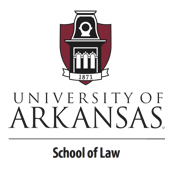Immigration Clinic
About the Clinic
Contact Us
Professor Amelia McGowan
Assistant Clinical Professor
Director of the Immigration Clinic
am242@uark.edu
(479) 575-5601
The Immigration Law Clinic was founded in the Fall of 2008. The Clinic provides opportunities for students preparing for a career in immigration law or general practice to develop skills that are critical the successful practice of law through experiential learning. It also serves the community by providing pro bono representation to area individuals who are in need of legal assistance in immigration matters.
Arkansas has one of the fastest growing foreign born populations in the country, yet few local attorneys practice in the area of Immigration law. A recent study found 50% of immigrants nationwide go without needed legal representation; given the rising population in Arkansas, that number is likely to be higher. Statistics also demonstrate that those immigrants without representation are significantly less likely to obtain relief than those who do have representation. The Immigration Law Clinic will educate students in both the specialized practice requirements and the substantive law relating to Immigration practice in order to fill in the void in locally available legal services. The Immigration Clinic serves as a model that prepares students for general practice by equipping them with both the skill sets and the value that are essential to succeed while filling a growing need in the community.
For Prospective Clients
The Immigration Law Clinic provides free legal services to individuals with immigration-related legal issues. Clients of the Clinic are represented by a team of one to two law students with specialized training and an experienced immigration attorney. This provides the students the opportunity to represent clients in a real-life setting, and gives the client the added benefit of having more than one attorney working on their case.
Intake Hours
If you need assistance with an immigration issue, you can seek representation from our office through a phone intake. Immigration Intake hours vary depending on the semester. Please call the Legal Clinic at 479-575-3056 for current intake hour availability.
Directions to Clinic
The clinic is located at the University of Arkansas School of Law, on the corner of Maple and Garland. Our office suite in 107 Waterman Hall, near the Northeast entrance to the School. Clinic parking is available from the Lindell entrance to the Garland Parking complex, and is by appointment. Those needing handicapped accommodation should let your intake student so we can make arrangements to get a permit to you.
Necessary Documents
If you are accepted for an intake interview at the Immigration Law Clinic, please remember to bring ALL documentation that may be relevant to your case. This includes:
- Notice to Appear
- Copies of any documentation received from the government (ex., receipts, denials, notices)
- Copy of any applications submitted by your or an attorney/representative
- Documentation of ANY criminal issues (even if you were arrested and all charges were dropped)
- Green card or Lawful Permanent Resident Card
- Employment Authorization Document
- Passport and any other identification
- Original documents you used to enter the country if you came on a visa
- Birth certificates of you and any family members
Costs
All legal services provided by the Immigration Law Clinic are free. Clients are only responsible for costs of applications, filing fee, and related mailing costs.
Please read our Frequently Asked Questions for Prospective Clients.
For Students
The Immigration Law Clinic counts for 4 hours of graded course credit, requiring students to do 225 hours of work in the Clinic throughout the semester. Although this breaks down to approximately 15 hours per week, students should be prepared to commit to working as many hours as are needed to vigorously represent their clients.
The course will be front loaded to provide basic legal knowledge in substantive immigration law, including the Immigration and Nationality Act, Code of Federal Regulations, and Department of Homeland Security forms, applications, and internal policies. Classes will also be taught on subjects specific to representing individuals in Immigration Court, such as working with interpreters and the impact of the administrative nature of the court system. Readings in the course will be related to substantive law and will be taken from various sources throughout the semester. Students will also be required to read skills-related articles and books to prepare for working with clients and handling representations. Guest lectures throughout the semester may include local immigration attorneys, interpreters, staff from the Immigration Courts, and attorneys with the Department of Justices.
Please read our Frequently Asked Questions for Prospective Clinic Students.

